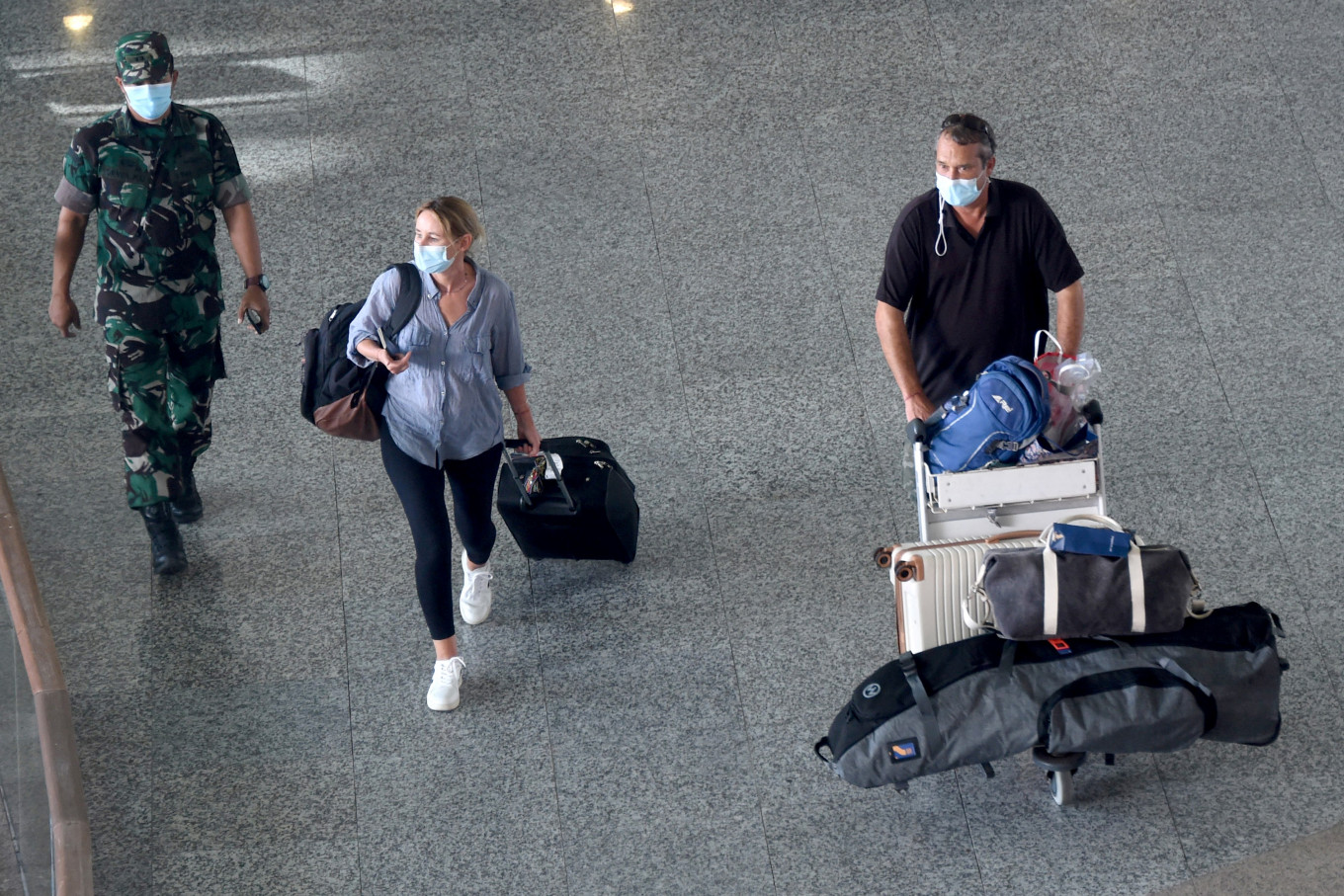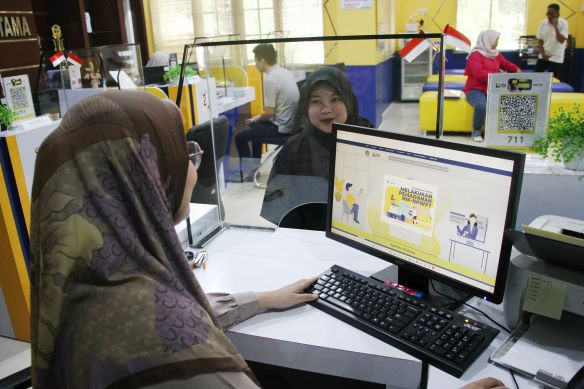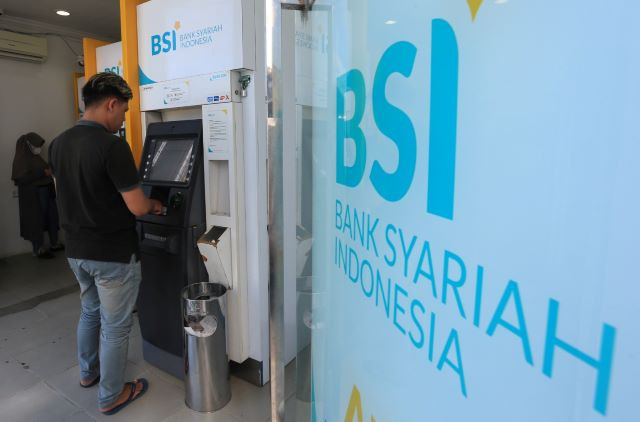Bali reopens
Tourism and Creative Economy Minister Sandiaga Uno announced that Bali had achieved herd immunity based on serology tests conducted by the Health Ministry and the Home Ministry.
 Travelers walk through the international arrivals hall at Ngurah Rai International Airport in Denpasar, Bali, on Feb. 16, 2022, after a Singapore Airlines flight arrived following a nearly two-year break due to COVID-19. (AFP/Sonny Tumbelaka)
Travelers walk through the international arrivals hall at Ngurah Rai International Airport in Denpasar, Bali, on Feb. 16, 2022, after a Singapore Airlines flight arrived following a nearly two-year break due to COVID-19. (AFP/Sonny Tumbelaka)
G
ood news for international travelers longing for sunbathing or panoramic sunsets on Bali’s beaches and local tourist industry players alike, as the government has reopened the Island of the Gods starting March 7. Foreign nationals from 23 countries who have received a second dose of vaccine against COVID-19 can apply for a visa on arrival and will need to wait only 24 hours until their on-arrival PCR tests return negative before they can explore the beauty of Bali’s land and culture.
The reopening has been conducted in phases following a decline in the spread of COVID-19 and the high vaccination rate in Bali. Before March 7, only Australian travelers were allowed to visit, and those arriving in Bali had to undergo five days of quarantine.
Tourism and Creative Economy Minister Sandiaga Uno announced that Bali had achieved herd immunity based on serology tests conducted by the Health Ministry and the Home Ministry. The tests revealed 90 percent of Bali’s population had developed antibodies against the virus.
For two years, mobility curbs to contain the spread of COVID-19 have crippled the tourist industry, the sector that sustains 70 percent of the island’s population.
Data from the Indonesia Marketing Association (IMA) found that Bali contributed Rp 89 trillion (US$6.2 billion), or 30 percent, to national revenues from tourism in 2019. That year the tourist island recorded 16 million tourist arrivals, but last year the figure nosedived to only 1 million.
The association also reported the island’s hotel occupancy rate reached 59 percent in 2019 but dropped to 15.6 percent in 2020 and 13.1 percent in 2021, as businesses felt the pinch from the pandemic.
Before COVID-19 dealt its major blow to Bali tourism, the industry had previously suffered other crises. In 2002 and 2005, there were two bomb attacks perpetrated by the terrorist organization Jamaah Islamiyah. Only because of Bali’s resilience and support from the whole nation, could the industry bounce back.
Learning from the experience of the early 2000s, there should be no qualms that Bali can recover stronger from the pandemic-induced crisis. Bali, as well as Indonesia, should get back to its feet as life must go on.
Reopening borders to help the economy recuperate has become a common phenomenon, at least in Southeast Asia. Vietnam now only requires international travelers to prove they test negative for COVID-19 upon arrival. Meanwhile, Thailand in November opened its borders to travelers from 60 countries without quarantine, but suspended the policy until Feb. 1 due to a spike in Omicron cases.
Malaysia will also welcome back fully vaccinated foreign travelers without mandatory quarantine as of April 1, while Singapore has allowed fully vaccinated travelers from Australia since November last year.
There are always risks with reopening borders as the virus will still be around for an unforeseeable period, therefore the key is strict enforcement of health protocols.
Virologist from Udayana University I Gusti Ngurah Kadek Mahardika, told the media the reopening would test Bali’s commitment to compliance with health protocols. He said the local community had not shown full adherence to the safety measures, as seen in the crowding of worshippers during rituals preceding Nyepi (the Hindu Day of Silence) earlier this month.
It is safe to say that the success, or failure, of Bali's reopening will shape the country’s bid to reopen all of its borders toward the recovery of its economy and life.










